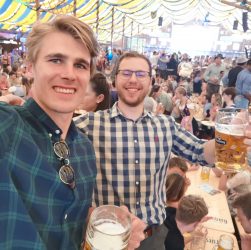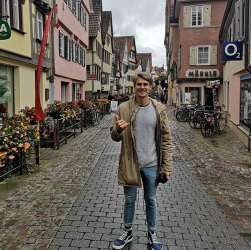In December 2017, which was the end of my third year of my bachelor’s degree program in Industrial Engineering, I …


In December 2017, which was the end of my third year of my bachelor’s degree program in Industrial Engineering, I …

DIME (Digital Industrial Management and Engineering) Masters at Hochschule Reutlingen If you are reading this post, you may have already …

Pre-departure: Here you should focus on your preparations for your trip abroad. It should include information about the visa application, …